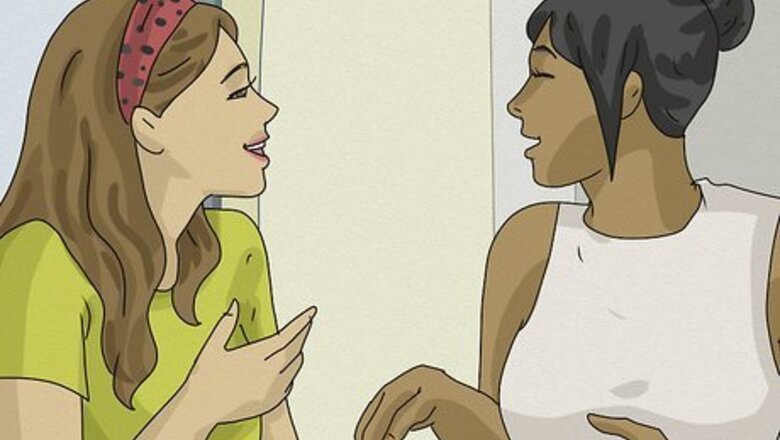
views
Being Fun

Be a responsive person. Being responsive can really attract people to you. If you're responsive, that means you are listening to the other person and engaging with them honestly. Responsiveness means you are making sure others know they are being heard and listened to. They should feel comfortable and valued in your presence. If you are talking to someone, you should validate their feelings and thoughts. Give them positive verbal feedback (such as “I understand” or “That must be difficult”) to show that are listening to what they are saying.
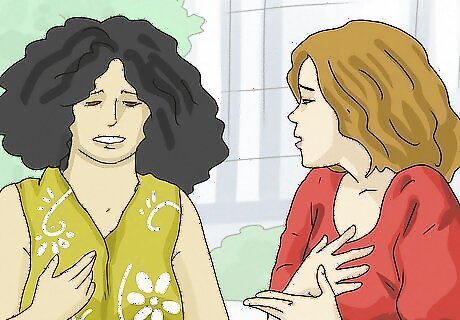
Show expressions when talking to others. If you are expressive when talking and listening to others, it's clear that you are engaged in what they are saying. They will want to talk to you and be around you more often when you're showing clearly interested in them and their thoughts. Lack of expression on someone's face makes others think you are not interested. Additionally, it can sometimes be unsettling when meeting new people. Expressiveness shows you are vulnerable and open towards others. Instead of hiding behind a mask of impassiveness, having an expressive face lets others know you are willing to share your feelings with them.

Speak well of other people. Lively people are more inclined to speak kindly of other people and not put them down. If you're spending too much time putting down others, you're not spending much time building yourself up. Conversations about others can often lack substance. Instead of spending your time talking about other's shortcomings, you can praise others and show what you value, instead of just what you dislike. Additionally, gossip about other people can hurt your self-esteem. If you avoid talking about others, you'll feel better about yourself as well. If you do not like others, don't conceal your dislike. It's better to be honest about your feelings than to be fake.
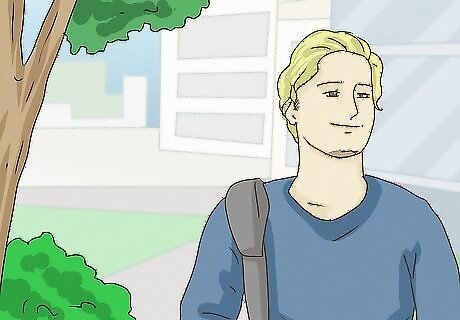
Be spontaneous. Spontaneity can make you more fun to be around and more interesting. However, it's a practice you have to develop through making conscious choices. Try to say yes as much as possible. If you agree to going places with people or doing things, you'll have more fun adventures. If you try to not be afraid of trying new things, you'll be more inclined to do them. Be motivated about why you should do new things and how you could do them.
Being Energetic
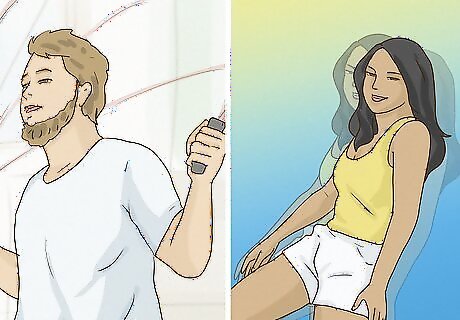
Act like you're fully of energy. If you're moving faster, your metabolism increases. Even if you're feeling sluggish, acting energetic can make you feel more energetic. Take plenty of physical activity breaks in your day. Anything from working out to running to dancing can keep your energy level up. Keep engaged constantly with something. Often, you may lack energy because you are bored or not doing anything mentally or physically.
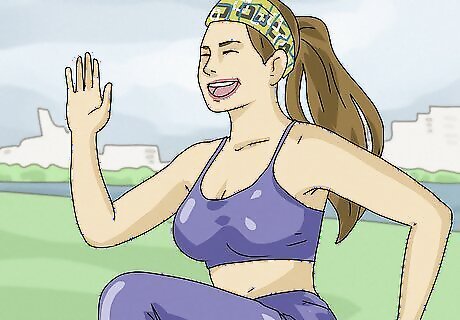
Get plenty of exercise. Exercise can give you energy and make you feel more active throughout the day. While you don't need to exercise a lot to feel more energetic, just a little physical activity can greatly increase your energy level. For the most part, 20 minutes or more of light physical exercise as little as three days a week can make you more full of energy. You'll feel less fatigued throughout the day and more capable of getting through the day with energy. Exercise can be better for your energy level than other things that give you energy. It's a healthier option than stimulants and can flush your body of toxins.

Listen to energetic music. Energetic music can improve your mood and make you feel ready to take on the world. Happy or up-tempo music can be useful, especially if you're feeling down or tired. Music will make you feel better if you're sad. It releases a number of chemicals in the brain, including dopamine and serotonin, that improve your sense of well-being. You can also become motivated by music. Playing songs that make you feel ready to conquer the world can encourage you to get up and do something.
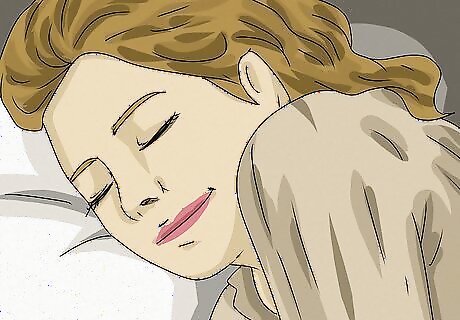
Take short naps. Sometimes, you may need to replenish your energy by taking a nap. However, shorter naps can make you feel better than trying to sleep for a long time during the middle of the day. If you take a 20-30-minute nap, you'll feel more alert and focused. You also won't feel groggy and the nap should not change your sleep during the evening. Longer naps for an hour or more can make you feel groggy when you wake up. They can also make it harder to fall asleep at night.
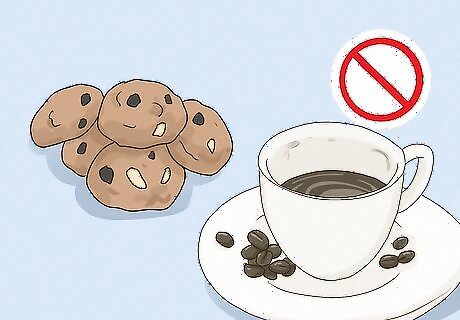
Don't use food or caffeine. Food or caffeine can seem tempting as an artificial stimulant. However, they only boost you up temporarily, only to bring you back down when their effects wear off. Caffeine is a stimulant that people often use to be energetic. However, it can be less effective over time and cause you to crash. Eating to feel more energetic is often counterproductive. In many cases, especially with foods high in fat or sugar, eating will make you tired after the initial effect has worn off.
Being Personable
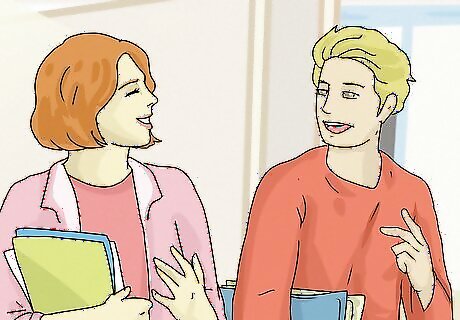
Talk to people when you meet them. When you first meet new people, come up and start talking to them immediately. Instead of hanging back and waiting for them to approach you, try to talk to them immediately. Keep your conversation on generally happy topics. You don't want to dwell on negative topics, especially when you first meet a new person. React to what the other person is saying. If you're listening to them, you can steer the conversation in fun and interesting ways.
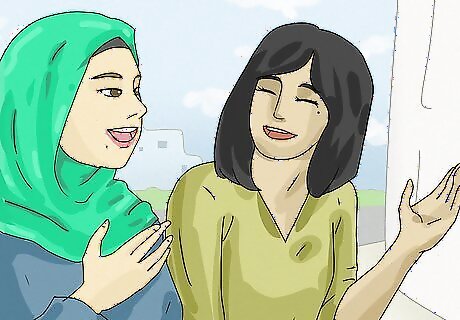
Convey open body language. Body language communicates to the other person how you feel about them. Have a relaxed, easy-going posture and position when talking with others. Keep your arms and feet open. Crossed arms or feet give the impression that you are closed off to the other person and what they are saying. Maintain eye contact with the other person. While you don't want to stare at them, it's important that they know you are directed towards them and what they are saying.

Ask plenty of questions about the other person. It's important to be a good listener and be interested in what the other person is saying in order to be personable. While you don't want to grill the other person, asking them about themselves can be a good way to get to know someone. When you're asking questions about another person, be respectful of their boundaries and what they are telling you. If someone doesn't feel comfortable talking about something, don't pressure them. Always talk less than you listen. It's important to contribute to a conversation with someone, but make your contributions relate to what they are talking about, so it feels like a back and forth rather than a series of monologues.
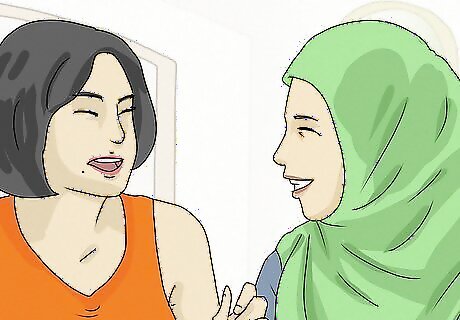
Have a sense of humor. A sense of humor can make people more comfortable around you and show that you're personable. Looking at the funny side of things helps others feel good and relaxed around you. Find the joke in any situation. While you want to be careful not to offend anybody, there's always something to laugh at about most any situation. It's also important to let humor come naturally. If you try to tell jokes artificially or force humor, it can make people uncomfortable.










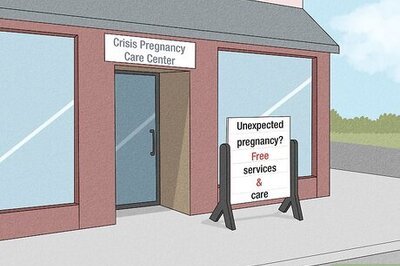

Comments
0 comment